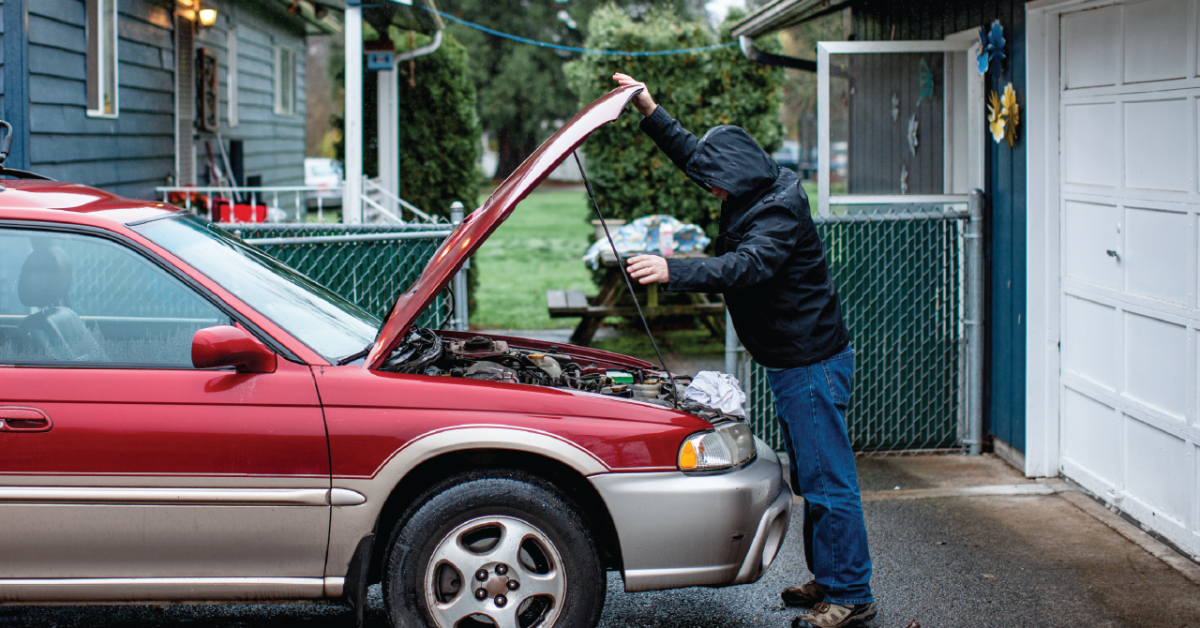Most Americans express confidence in their ability to do various practical tasks, according to a recent Pew Research Center survey.
The survey asked Americans if they felt they could do each of 12 activities, ranging from everyday household tasks to ones that require more technical knowledge.
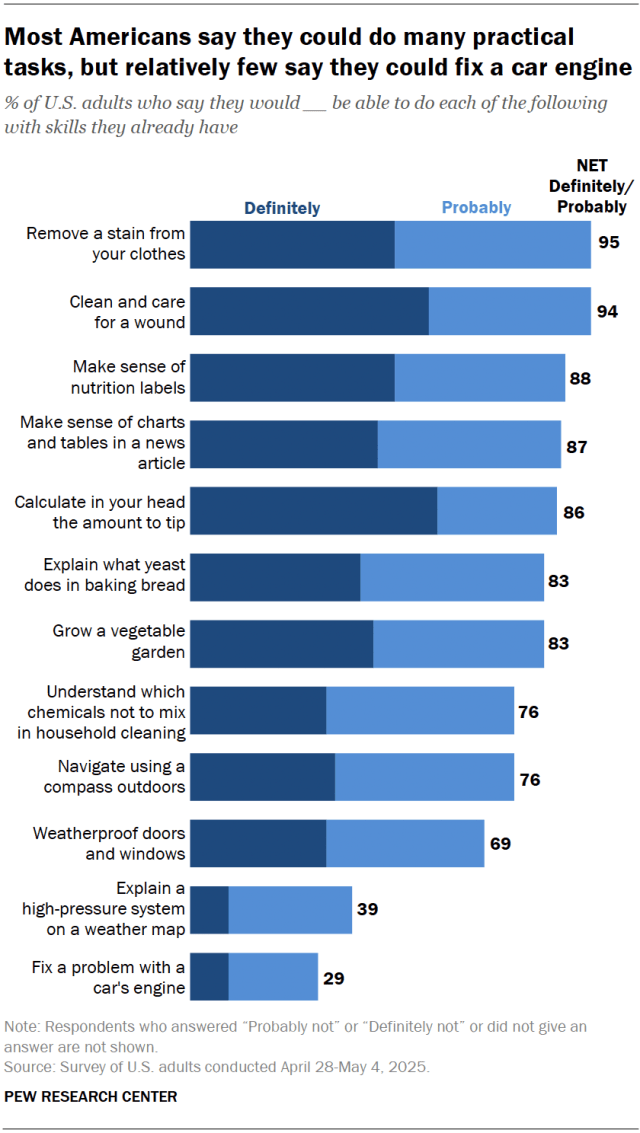
Most Americans say they can do certain tasks related to health and food:
- 94% of U.S. adults say they definitely or probably would be able to clean and care for a wound.
- 88% say they would be able to make sense of nutrition labels.
- 83% say they could explain what yeast does in baking bread.
- 83% say they could grow a vegetable garden.
Most Americans also are confident in their ability to do certain household tasks:
- 95% of adults say they definitely or probably would be able to remove a stain from their clothes.
- 76% say they would understand which chemicals not to mix in household cleaning.
- 69% say they would be able to weatherproof doors and windows.
Most Americans also say they definitely or probably would be able to understand charts and tables in a news article (87%), calculate the amount to tip in their head (86%) or navigate using a compass (76%).
Americans are much less confident in their ability to do other tasks that require more specialized knowledge. Fewer than half say they definitely or probably would be able to explain a high-pressure system on a weather map (39%) or fix a problem with a car’s engine (29%).
How confidence varies by education
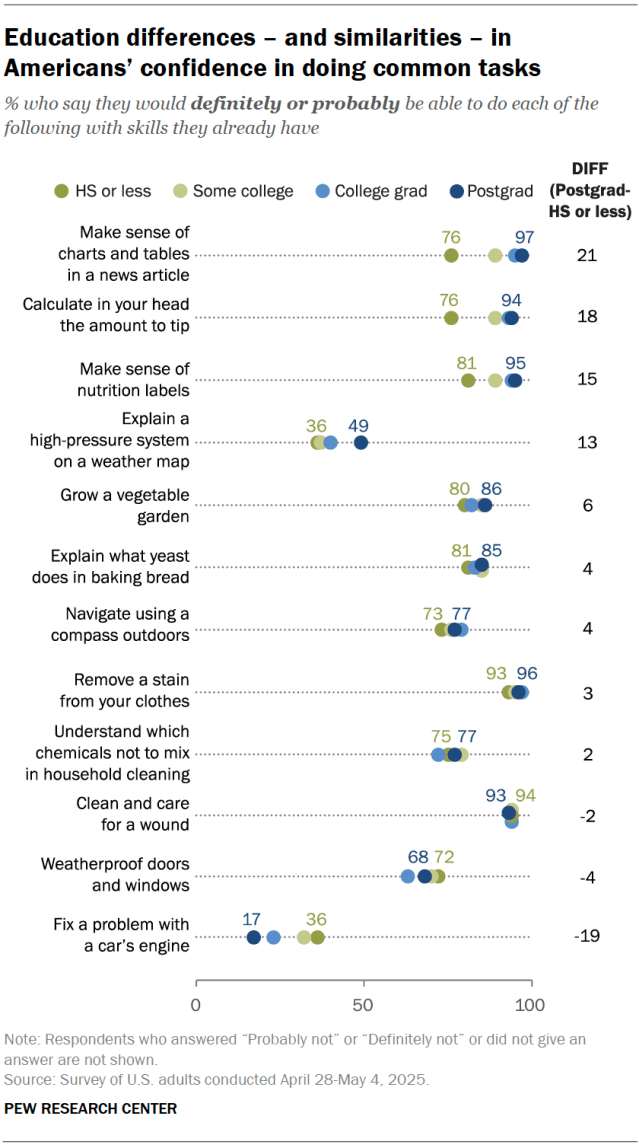
Americans with more education are more likely than those with less education to say they would be able to make sense of numerical information and do math in their head. Still, large majorities across all educational groups say they would be able to do these things.
The pattern is reversed when it comes to fixing a problem with a car’s engine: Americans without a college degree are more likely than those with a degree to say they definitely or probably would be able to do this.
How confidence varies by gender
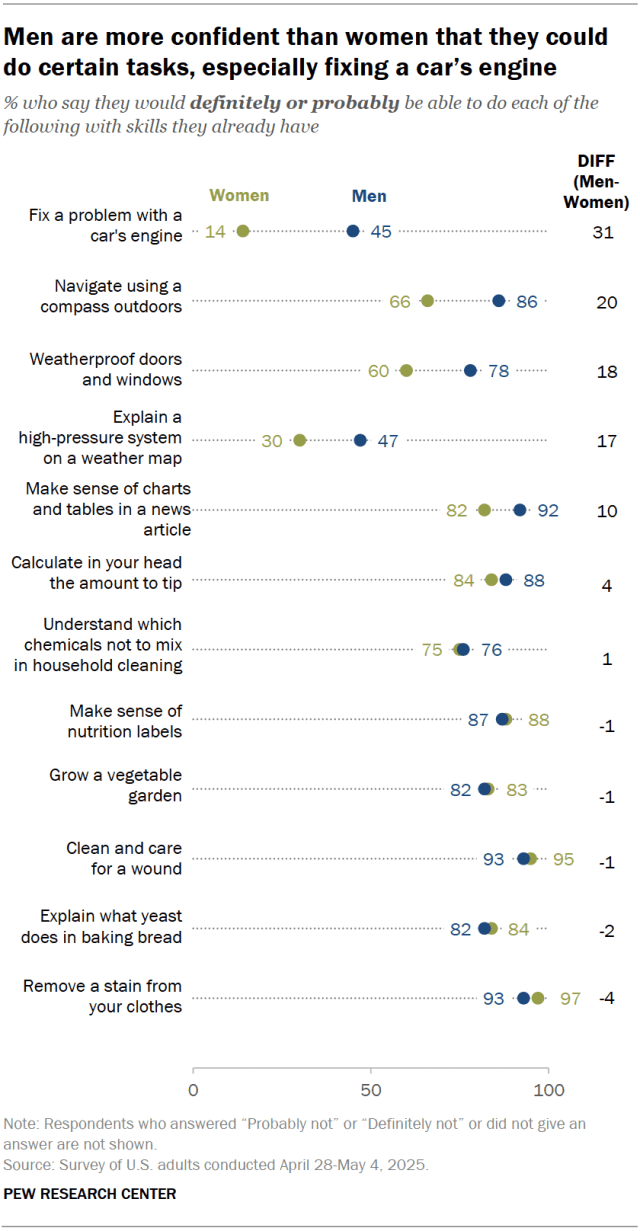
Men and women often take on different roles in households and practical tasks. And men are more likely than women to say they would be able to do some of the tasks we asked about.
- The largest gender gap concerns fixing a car’s engine: 45% of men say they definitely or probably would be able to do this, compared with 14% of women.
- Men are also much more likely than women to say they’d be able to navigate using a compass outdoors (86% vs. 66%), weatherproof doors and windows (78% vs. 60%), and explain a high-pressure system on a weather map (47% vs. 30%).
- There are only small gender differences in other tasks we asked about. For example, similar majorities of men and women say they would be able to calculate the amount to tip in their head or make sense of nutrition labels.
How confidence varies by age
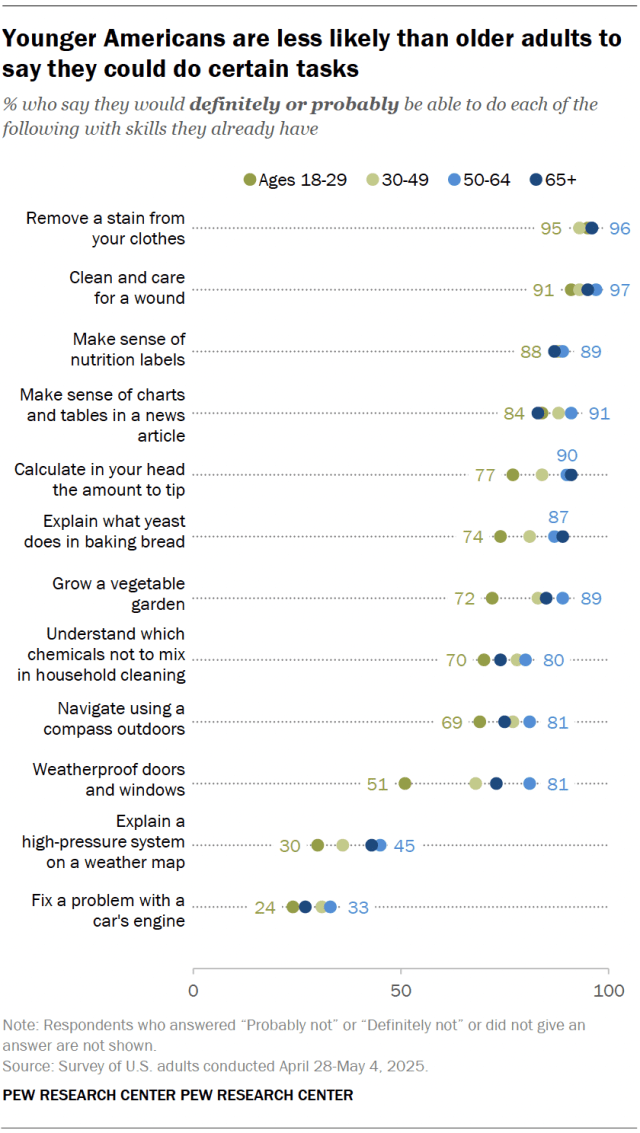
Majorities of younger adults say they could do most of the tasks we asked about – though sometimes at lower rates than older Americans.
For example, 51% of adults under 30 say they definitely or probably would be able to weatherproof doors and windows, compared with much larger shares of older adults.
Also, 77% of adults under 30 say they would be able to calculate a tip in their head, compared with nine-in-ten ages 50 and older.
Related: Tipping Culture in America: Public Sees a Changed Landscape
Note: Here are the questions used for this analysis, the topline and the survey methodology.
